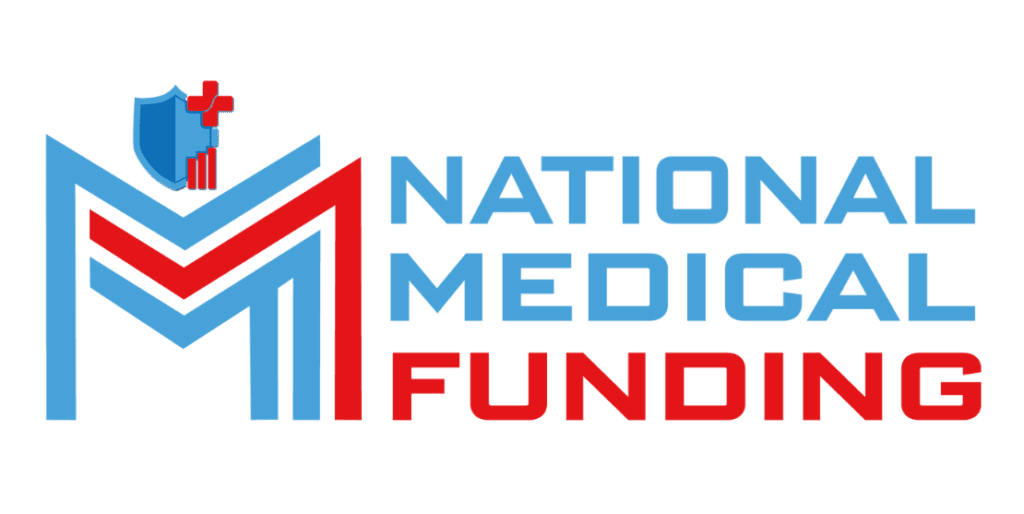
The Double Whammy: How Your Personal Debt Sha
The Real Cost of Credentialing: Debt Comes with the Whi...

Saturday and Sunday – CLOSED
support@nationalmedicalfunding.com



Running a medical practice means juggling two worlds — patient care and business management. Whether you’re expanding, upgrading, or covering temporary cash gaps, a loan can help you grow. But before you sign that dotted line, take a careful look at the details in your loan agreement.
The fine print isn’t just paperwork — it’s your financial roadmap. A little attention now can save your practice from expensive surprises later. If you’re exploring healthcare finance solutions, here’s what you should watch out for.
Loan agreements can be long and loaded with legal terms. But don’t skip them. Those pages hold key details about how your loan works — from repayment conditions to hidden charges.
Some lenders in medical industry lending include clauses about automatic rate increases or early payment penalties. Missing these could lead to major issues later.
A great starting point is this checklist for securing your first small business loan for your medical practice. It walks you through what to prepare and what to confirm before signing anything.
Your interest rate affects your monthly payments and the total amount you’ll repay. Fixed rates stay steady, making budgeting easier. Variable rates might start lower but can increase with market changes.
If your clinic runs on tight margins, stability may be better. On the other hand, if you expect strong growth soon, a variable rate could save money early on.
The best approach? Talk to experienced healthcare finance companies that understand how seasonal changes and reimbursements affect medical cash flow.
Beyond interest, lenders often charge extra fees — origination, processing, or even maintenance fees. These can quietly inflate your total cost.
Always ask your lender to list every potential fee upfront. Transparency is key. Specialized lenders in healthcare finance solutions usually offer more straightforward fee structures designed for busy medical professionals.
Repayment terms decide how much and how often you pay. Some lenders let you adjust your schedule during slower months, while others lock you into fixed payments.
If your practice experiences seasonal swings — like fewer visits in summer or year-end — flexible repayment is a lifesaver. A good lender in medical industry lending will understand your cash flow pattern and tailor your plan accordingly.
If you’re expanding or hiring, you might also explore how working capital loans help hire top medical talent. It’s a great resource for growing practices.

Collateral is what you pledge to secure the loan — equipment, property, or even receivables. If you default, the lender can claim those assets.
Before signing, confirm exactly what’s being used as collateral and how it’s valued. A clear agreement helps avoid confusion or loss.
Some healthcare finance companies even offer unsecured options if your financials are strong — a great way to reduce risk while still accessing funding.
Paying off your loan early should feel rewarding — not punishing. Yet, some lenders charge prepayment penalties because they lose future interest.
Before you sign, check if your agreement includes such fees. The best healthcare finance solutions allow early payment without penalties, giving you freedom to reduce debt whenever you can.
A lender that celebrates your success — not your balance — is one worth keeping.
Default clauses explain what happens if you miss payments or fail to meet certain conditions. Some lenders mark your loan as “in default” after just one missed payment — which can lead to extra fees or legal action.
Make sure the agreement outlines a clear grace period and communication process before default is declared. Lenders experienced in medical industry lending often understand the ups and downs of healthcare income and allow more flexibility.
Some loans or credit lines automatically renew — sometimes with changed terms or higher rates. Always check how renewals and adjustments work.
Ask questions like:
Good healthcare finance companies will clearly explain this upfront and give you full control over renewals.
When you borrow, you’re not just getting money — you’re forming a partnership. You want a lender who understands medical practices and provides real support when you need it.
Strong customer service makes a big difference, especially when you’re refinancing or facing temporary cash challenges.
A reliable partner in healthcare finance solutions helps you plan smarter and adapt faster — not just lend and disappear. A great example? Working with experts who guide you through big projects like financing a patient-centric redesign through a term loan.

Verbal promises are nice, but they don’t count unless written into the contract. Whether it’s a waived fee or a grace period, make sure it appears in the agreement.
The best healthcare finance companies encourage full documentation to build trust and protect both sides. Clear agreements mean fewer headaches later — and more time to focus on your patients.
Before committing to any business loan, ask these simple but powerful questions:
These questions show lenders you’re serious — and they ensure you fully understand your financial commitment.
A good loan is more than just funding — it’s a tool that helps your practice grow with confidence. The right lender will offer transparency, flexibility, and a genuine understanding of how healthcare businesses operate.
Always read carefully, ask questions, and choose a lender that aligns with your long-term goals. When your financial partner values clarity as much as you do, you can focus on what truly matters — caring for your patients and growing your practice.
Because in the end, a smart loan agreement isn’t just about money — it’s about peace of mind.
The Real Cost of Credentialing: Debt Comes with the Whi...
The Financial Puzzle of Speciality Practices Runn...

Fuel your medical practice’s growth with financial solutions tailored to your needs. We’re here to support independent practitioners and group practices with strategies built for success.


Mon Fri: 8:00am – 6:00pm
Saturday: Closed
Sunday: Closed
Copyright © 2025 National Medical Funding